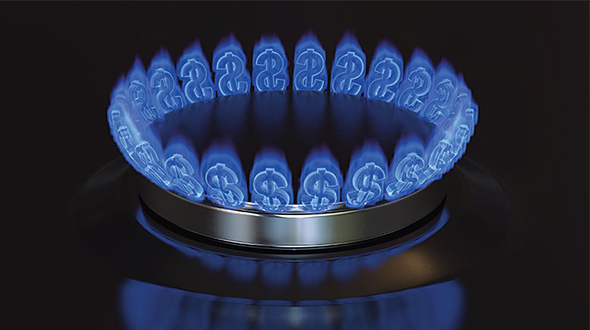Organic growth vs. organic theft in retail propane

Growth is achieved organically by adding new propane users or through the addition of burner tips in and around the home. Photo: iStock.com/Model-la
Organic growth in the retail propane business means expanding your customer base by adding new propane users or through the addition of burner tips in and around the home. Organic theft is a shortcut to organic growth achieved by stealing propane users from your competitors.
Most propane retailers end up with some blend of organic growth and organic theft, depending on the market in which they are operating and their personal strategy for growing their business. There are going to be risks and rewards no matter how you balance your growth efforts.
Numerous industry surveys point to organic theft as the most popular growth strategy for many – if not most – propane retailers. But, there is a big difference between “passive” and “aggressive” organic theft.
“Passive” organic theft comes mostly from word-of-mouth referrals because you are recognized as the best propane business in the area, your phone is ringing because of it, and you are selective in the type of current propane users you acquire. You don’t spend a lot of money looking for this growth so you have room in your budget to invest in customer retention tactics to enhance the customer experience and further bolster your company image. You can concentrate on organic growth by finding new users and ways to increase usage per customer.
“Aggressive” organic theft has the quick reward of fast gallon growth, but comes at a higher risk than other growth tactics. Newer propane companies tend to use “aggressive” organic theft as a primary growth plan.
Risks include lower profit margins due to predatory propane and tank installation pricing and high advertising expense. “Aggressive” organic theft tactics attract a higher percentage of low-quality customers (poor credit, price shopper, low user, etc.). Also consider the safety risks of hooking up to older existing underground gas lines because updating gas lines doesn’t fit into the predatory pricing of a free installation. Organic theft and unprofitable service departments seem to go together.
“Aggressive” organic theft is the main culprit in the relatively poor overall image propane has in the energy space. Organic thieves advertise that propane run-outs, poor service and high prices are common with their propane competitors. They encourage and feed into the perception that propane and propane providers are poor performers, when just the opposite is true in almost all cases.
For example, your electric utility or rural electric co-op has massive numbers of unintended power outages affecting thousands of its customers every year. Compare those run-out numbers to your unintended run-outs and you will see what I mean. Increasing sales of propane standby generators also proves this point. Consumers value energy dependability and good value, and propane has the answers. “Aggressive” organic thieves tend to advertise the opposite.
Each market offers unique opportunities for propane growth. Propane retailers, by choice or by default, choose the right blend of organic growth and organic theft that works for them. Both methods of growth offer risks and rewards.
Depending on where you are in your business cycle, you may want to consider that a stable propane business built primarily through organic growth presents a better acquisition value when it is time to turn in the keys to the front door. How do you want to grow?
Tom Jaenicke is vice president of propane marketing services for Warm Thoughts Communications.
















